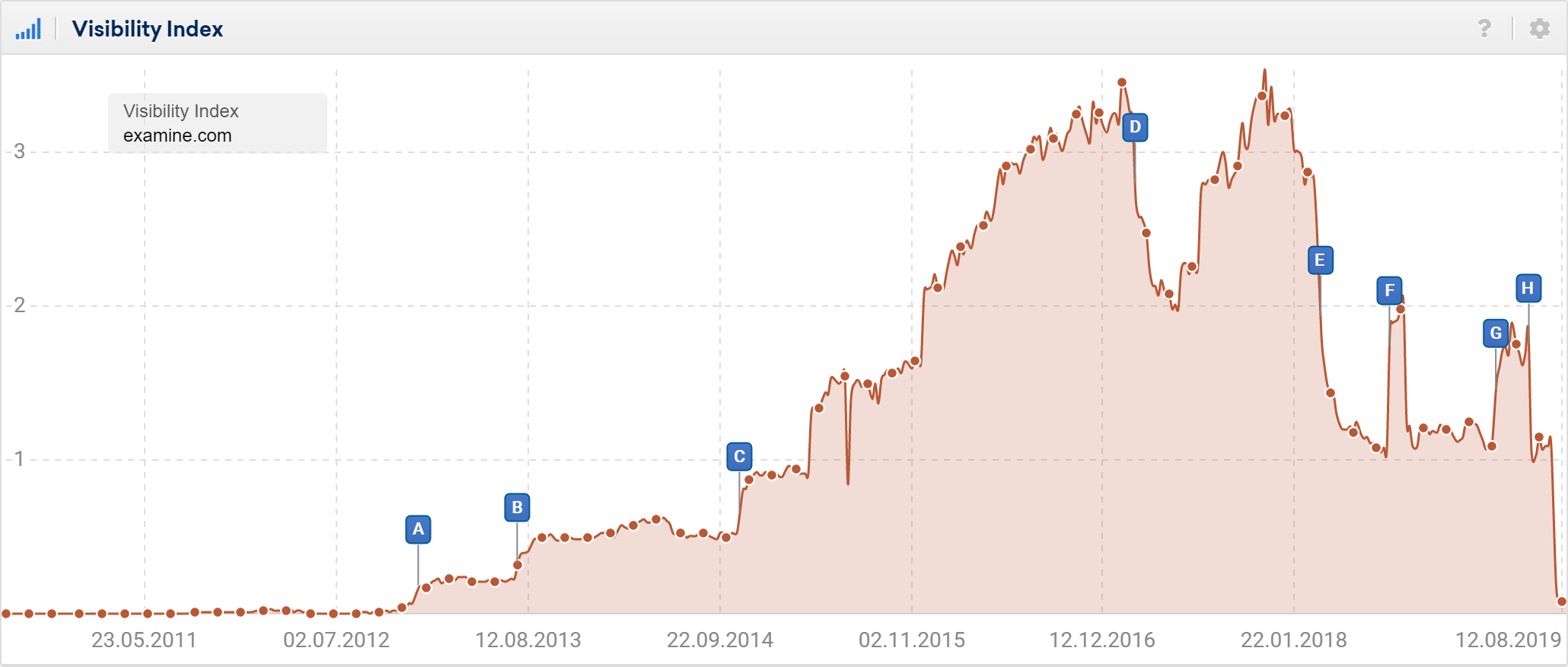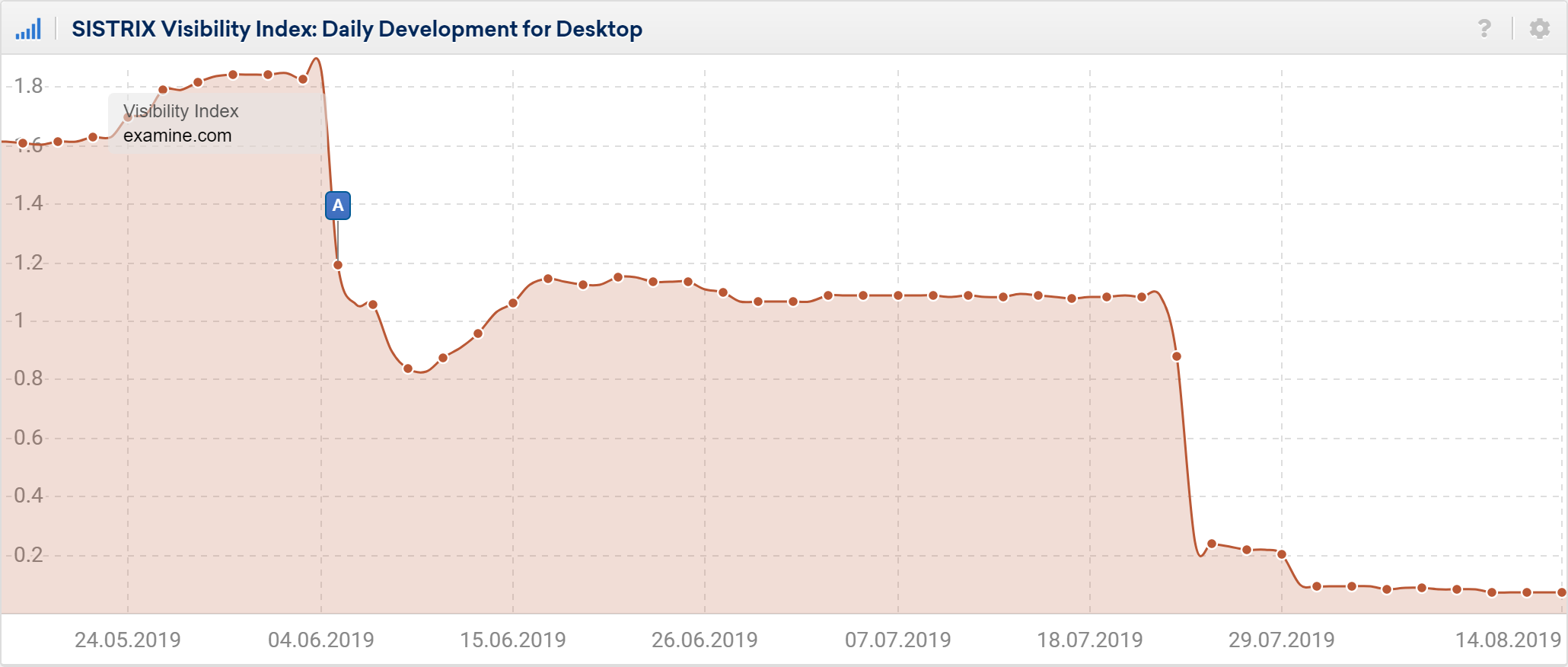Health-related domains were widely affected by the recent Core Updates. Now, with examine.com, it’s hit a domain which appears to do everything right. Is Google failing because of its own high demands?
Kamal Patel, nutrition researcher and one of the founders of Examine.com, has launched an interesting discussion on Google’s handling of content from sensitive areas in his article “Why has Examine.com disappeared from search results?“
Examine.com was founded in 2011 by Sol Orwell, Kurtis Frank and Kamal Patel. The aim was to summarise nutritional and nutritional knowledge based on proven scientific studies. The domain rankings have been repeatedly affected by the major Google updates in the past. Here’s an example of visibility in the UK:

A few days ago there was an additional loss of Visibility in the Google search results. If you look at the daily visibility data in the toolbox, the domain has been (almost) completely removed from the SERPs:

Based on the Ranking Distribution, it’s clear that of the few keywords for which Examine.com is still ranking, almost no keywords can be found on the important first page of Google Search results. Kamal Patel confirms this development with data from Google Analytics: for a few days, the graph is just above the zero line:

Examine.com, the model student
What happened? Superficially, examine.com falls easily into the pattern of many health-related domains: nutrition and dietary supplements – a topic that has traditionally attracted rogue traders and is currently under-regulated on the Internet.
But in this case, the reality is a bit different: Examine.com meets and exceeds all the requirements that Google places in the Quality Rater Guidelines on “Your Money, Your Life” (YMYL) pages:
- Articles are written purely on an evidence-based, scientific basis
- Sources are named and linked
- The contents are written by experts
Examine.com is the model student in this sensitive field – and it still gets put into the same pigeon-hole as sites like mercola.com, which are distinguished by sentences like “But clinical trials…are not qualifications. They are scams.”
As Kamal Patel correctly suspects, Examine.com is caught in the crossfire of Google’s new approach.
Google’s dilemma
Google has long-considered search as a technical solution and refrained from any evaluation or classification of the content itself. The results shown were the matches that had good ranking signals, even if, as in the case of “miserable failure“, it was the biography of a US president. Even politically dangerous cliffs such as a personalisation of search results have cleverly bypassed Google.
But Google is more than a search engine now. Since users only provide valuable advertising clicks within the SERPs, Google endeavours to keep users in its own network for longer. While this initially focused on simple and objectively verifiable searches such as the current weather or stock market prices, Google is now on the way to providing a single answer to many users questions (more on the topic in this blog post).
Google has good intentions
On one hand, Google has good intentions. The Quality Rater Guidelines emphasise the importance of content quality and objectively verifiable correctness of content, especially for sensitive areas that are concerned with the health or the finances of users. Google stands for the right ideals: scientifically verifiable, transparent, objectively correct. Google also acknowledges its responsibility to users.
An (almost) unsolvable task
On the other hand, there is a danger that Google starts to misbehave. The binary right / wrong classification of content is (almost) impossible and the erratic visibility of many health domain domains reveals how uncertain the algorithm is with this task. It also raises the question of whether an incorrect positioning, as in the example of Examine.com, does less damage than the other way round.
Conclusion
Google will continue to have an opinion on content. Until now, the laws of the respective country provided the framework for the content permitted in the SERPs. Now, and into the future, the search engine will define tighter rules. This is understandable and theoretically correct, but it brings great dangers – not only for SEOs, but also for Google.